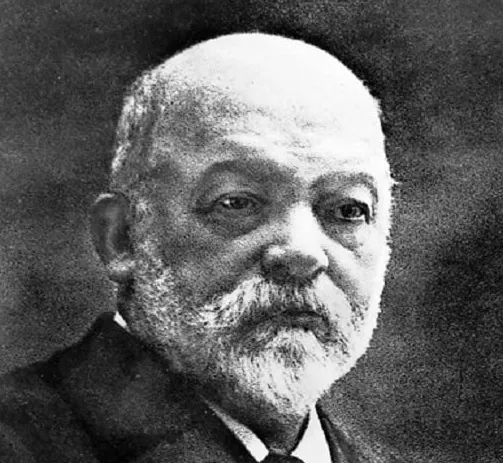
Gottlieb Daimler: Engineering Pioneer and Automotive Visionary
Gottlieb Daimler, a name synonymous with innovation and engineering brilliance, played a pivotal role in shaping the course of the automotive industry. His groundbreaking work in engine design, fueled by an insatiable curiosity and an unyielding passion for mechanics, transformed the way the world would travel. This biography delves into the life and contributions of Gottlieb Daimler, a visionary whose legacy continues to drive automotive advancements to this day.
Early Years and Passion for Engineering.
Gottlieb Wilhelm Daimler was born on March 17, 1834, in Schorndorf, Germany. From a young age, he exhibited a keen interest in machines and mechanics. After completing his education, he embarked on a journey through various engineering roles, including stints at machine shops and engineering firms, where he honed his skills and gained valuable experience.


The Birth of the High-Speed Engine.
Daimler's most groundbreaking contribution to the world of engineering was his development of the high-speed internal combustion engine. Collaborating with his business partner Wilhelm Maybach, he achieved a major breakthrough in 1883 when they built the world's first high-speed, small-displacement, four-stroke engine. This engine laid the foundation for modern internal combustion engines, as its compact size and high efficiency enabled its application in various industries, including transportation.
The Transition to Automobiles.
Daimler's fascination with engines led him to envision a future where these powerhouses could be harnessed for personal transportation. In 1885, he unveiled the "Motorwagen," a horseless carriage powered by his innovative engine design. This historic creation is widely considered to be one of the first true automobiles, marking a significant leap forward in the quest for automotive mobility.


Engineering Visionary and Entrepreneur.
Daimler's dedication to pushing the boundaries of engineering extended beyond just the technical aspects. He possessed an entrepreneurial spirit that drove him to establish his own engine and automobile manufacturing company. In 1890, he founded "Daimler-Motoren-Gesellschaft" (DMG), which became a pioneering force in the automotive industry, producing vehicles that combined performance, reliability, and innovation.
Legacy of Innovation.
Daimler's legacy is not limited to the vehicles he produced; it extends to the principles and technologies he championed. He emphasized the importance of lightweight and efficient engines, focusing on power-to-weight ratios that remain crucial in contemporary automotive design. His work laid the groundwork for advancements like supercharging, which boosted engine performance, and his dedication to high-speed engines contributed to the development of aviation technology.


Enduring Influence.
Gottlieb Daimler's influence continues to permeate modern automotive engineering and design. His commitment to innovation, efficiency, and pushing the boundaries of what was possible paved the way for subsequent generations of engineers and designers. The Mercedes-Benz brand, an amalgamation of Daimler's name and the Benz brand, stands as a testament to his ongoing legacy in the automotive world.
Conclusion.
Gottlieb Daimler's life was marked by an unrelenting curiosity, an insatiable desire to innovate, and an unwavering commitment to engineering excellence. His contributions to engine design and the birth of the automobile are not only significant historical milestones but also enduring pillars upon which the entire automotive industry has been built. Daimler's legacy serves as an inspiration for those who seek to push the boundaries of technology and redefine what is possible in the pursuit of progress.

eXus Dev 14.8.2023







































